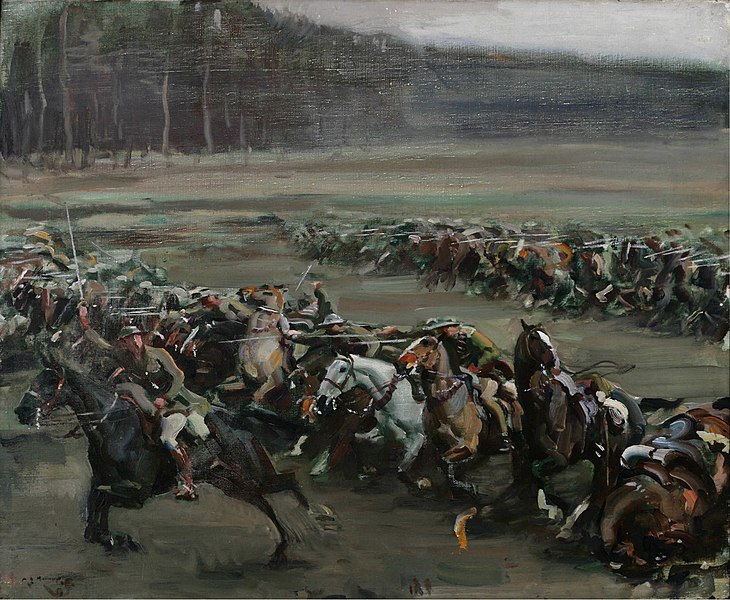 |
| "Charge of Flowerdew's Squadron" by Sir Alfred Munnings, 1918. Canadian War Museum - 19710261-0443 |
The commemoration begins March 30, 2018 when the Strathconas, as they are also known, will parade and re-enact the battle.
Additionally, the Town of Moreuil will grant the unit Freedom of the City on March 31. Freedom of the City is a tradition dating back to the Wars of the Roses, a 13th century conflict that pitted powerful British families against one another for the throne. Municipal officials of the time would meet with the commanding officers of units seeking entry and, once their intentions were determined to be friendly, the units would be invited to march through the city streets.
The unit more than lived up to its motto, ‘Perseverance,’ at Moreuil Wood where they and the other troops that made up Canadian Cavalry Brigade (CCB) faced a German offensive on March 30, 1918.
With British units in withdrawal, the CCB was called upon to face the enemy near the French town of Moreuil. With the rest of the CCB engaged with the Germans in the wood, a squadron led by Strathcona Lieutenant Gordon Muriel Flowerdew moved to the northwest corner of the battlefield to stop enemy reinforcements from entering the battle.
The 100-strong squadron discovered a German force of 300 bolstered by machine guns. Despite the overwhelming firepower, Lt Flowerdew led the squadron in a charge, reputedly shouting, “It’s a charge, boys, it’s a charge!”
He led two charges that caused the Germans to withdraw. The squadron suffered 70 per cent casualties and LtFlowerdew sustained wounds that would kill him the next day. “There can be no doubt that this officer’s great valour was the prime factor in the capture of the position,” his VC citation reads.
The action is also notable historically for being one of the last documented horse-mounted charges, which were falling out of style with military tacticians by the early 20th century.
No comments:
Post a Comment